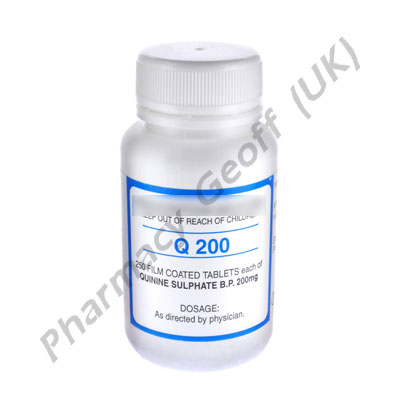
Our price: £87.36
Quinine Sulphate
Quinine Sulphate and Malaria
Quinine Sulphate is commonly taken in a pill form to help to reduce leg cramps. It is often given as a barrier too for those traveling to locations where it is possible for them to be affected by malaria. The dose is typically from 600 to 650 mg daily. It is often given in conjunction with other types of medications too including Tetracycline when used for malaria. The regimen will continue for a period of 3 to 5 days.
Quinine Sulphate and Leg Cramps
For those using Quinine Sulphate for leg cramps the daily dose is 200 to 300 mg. It may need to be taken several times a day. Many people only get the leg cramps at night though so they take it in the evening to prevent them. This medication should only be taken with food because it can cause nausea and vomiting if it is taken on an empty stomach.
Quinine Sulphate Precautions
It is very important that individuals with anemia don’t take Quinine Sulphate. It is possible for someone to develop anemia when they take it so it is very important for the doctor to keep an eye on this. Anyone taking blood thinner medications shouldn’t take this medicine.
It is best not to use Quinine Sulphate during a pregnancy for leg cramps. However, if a woman has malaria then the risks to her and the fetus are higher if she doesn’t use this medication than if she were to take it. A woman that uses this form of medication should avoid breastfeeding.
Quinine Sulphate Side Effects
There are some forms of side effects that someone may experience when they use Quinine Sulphate. They include tinnitus, nausea, blurred vision, headache, and anxiety. It is very important to only take the dose that the doctor recommends. Too much of it can have adverse effects on the central nervous system, cardiovascular system, and skin.
Some individuals experience trouble breathing when they use this medication. That is very serious and they need to seek immediate medical attention. It is believed that the use of tobacco can result in the side effects being more severe.


 Categories
Categories